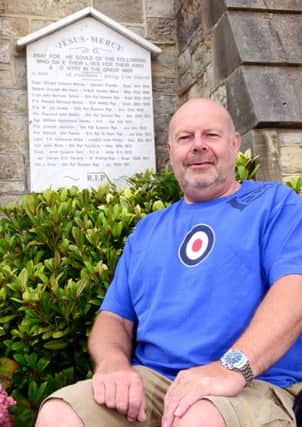Littlehampton Captain’s heroic final moments revealed


Captain William Murray was killed in action at the River Aisne, near Soissons, six weeks into the conflict.
The centenary of the Captain’s death was marked on Sunday, during a service at St Catherine’s RC Church, in Beach Road, Littlehampton.
Advertisement
Hide AdAdvertisement
Hide AdBut his fascinating final moments have been unveiled by East Preston man Mike Dunne.
Mike, 58, has been researching the histories of the 14 men commemorated on the church’s war memorial.
He said: “I have been doing genealogy long before computer records existed.
“It’s a bit of a hobby of mine. Once you start digging into the genealogy side of things and people’s own history, it becomes even more interesting.”
Advertisement
Hide AdAdvertisement
Hide AdMike, who has been a member of the Society of Genealogists for a decade, agreed to undertake the project for the church after having previously researched its 150-year anniversary.
Captain Murray was 33 when he died and lived at the Manor House with his wife, Lilias Drummond-Murray.
He served in the South African war 1901 to 1902 where he took part in operations in the Transvaal region, for which he was awarded the Queen’s medal.
In 1906, he retired from active service following an attack of blackwater fever.
Advertisement
Hide AdAdvertisement
Hide AdHowever, on the outbreak of war, in 1914, he rejoined the army.
On the day he was killed, Murray was leading his men through a barrage of shell and small arms fire in a valiant effort to hold their lines.
Sergeant A. H. Fraser wrote: “Personally, I have never seen such a man so cool under fire before or since. His name, I am sure, will be remembered in the regiment when all the battles are fought and finished. His last words, addressed to a private who was binding up the wound in his head, were ‘you must hold on here at all costs’.”